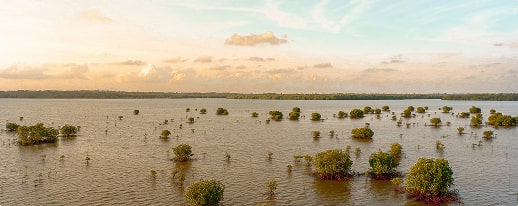Why BASUS?
A week that changed Europe
In early September 2024, Storm Boris brought record-breaking rainfall to Central Europe, unleashing devastating floods across Poland, Germany, Czechia, Austria, Hungary, Slovakia, and Romania. Over the course of just a few days, dozens of communities were inundated. Rivers such as the Oder, Vistula, and Prut surged past historic levels, swallowing streets, homes, and farmland.

Because sustainability is not just about the environment, it’s about lives, livelihoods, and the decisions we make today for tomorrow.

The planet doesn’t have time, but you do
- “Out of 135 targets with trend data and additional insights from custodian agencies, only 17% are progressing as expected to be achieved by 2030.”
- “Nearly half (48%) exhibit moderate to severe deviations from the desired trajectory, with 30% showing marginal progress and 18% indicating moderate progress.”
- “Alarmingly, 18% have stagnated, and 17% have regressed below the 2015 baseline levels.”
- Global conflicts and displacement, with 72% increase in civilian casualties and 110 million forced displacements.
- Uneven progress in poverty and hunger, with 23 million more in extreme poverty and 123 million more in hunger.
- Worsening climate crisis and environmental degradation, with record highs in greenhouse gas concentrations and tripled fossil fuel subsidies.
- Persistent weak global financial systems and inequality, with a $4 trillion annual investment gap for SDGs in developing countries.
- Education stagnation and gender equality are elusive, with one in five youths unemployed.
Europe as a living lab for sustainability

Studying in different countries, students gain a multifaceted understanding of sustainability challenges and solutions, informed by varying political, cultural, and economic contexts.
Where BASUS can take you?
- In 2023, green jobs worldwide increased from 13.7 million to 16.2 million, marking an 18% annual rise, the highest ever recorded (World Economic Forum).
- By 2021, the environmental goods and services sector in the EU employed 5.2 million people, accounting for about 2.5% of total EU employment (European Environment Agency).
- Despite this growth, a significant skills shortage persists. Between 2023 and 2024, the global demand for green talent grew by 11.6%, while the supply increased by only 5.6%. Employers were 54.6% more likely to hire job seekers with green skills than the overall workforce (ESG News).
- Climate policy analyst to develop and assess policies aimed at mitigating climate change.
- Environmental policy analyst to evaluate environmental regulations and their impacts.
- Chief sustainability officer (CSO) to lead sustainability initiatives within organizations. In Dublin, CSOs earn between €150,000 and €200,000 annually.
- Sustainability Manager to oversee sustainability strategies; in Amsterdam, the average salary is €81,650 per year.
- ESG consultant to advise companies on Environmental, Social, and Governance practices (Morgan McKinley 2025).
- Renewable energy engineer to design and implement renewable energy systems.
- Environmental scientist to study environmental issues and develop solutions (Presidio Graduate School).
- Environmental educator to teach about environmental issues and sustainability.
- Sustainability communications specialist crafting messaging around sustainability initiatives.

Is the BASUS for you?
If most of the following statements resonate with you, chances are that BASUS is the right programme to shape your academic and professional journey.
- You want a career that makes a real impact on the planet and society.
- You’re curious about how different countries tackle climate change, inequality, and energy transition.
- You want to study across multiple European countries and explore diverse approaches to sustainability.
- You believe in collaboration over competition and are excited to work with peers from all over the world.
- You value hands-on, challenge-based learning over traditional lectures.
- You want to build both scientific and social insight into global development.
- You’re interested in green careers, from ESG to policy to circular economy strategy.
- You’re ready to engage in student-led research, fieldwork, and real-world projects.
- You are looking for a degree that’s delivered entirely in English, but grounded in local realities.
- You want to graduate with transferrable skills, cross-cultural experience, and career readiness.
With BASUS, learning doesn’t happen in one classroom or country; it starts from Poland and spread to Germany, Finland, Spain, Belgium, Italy, amongst others, online, and in hybrid formats. That’s why your next degree could be your first major step toward becoming a leader in sustainability.
